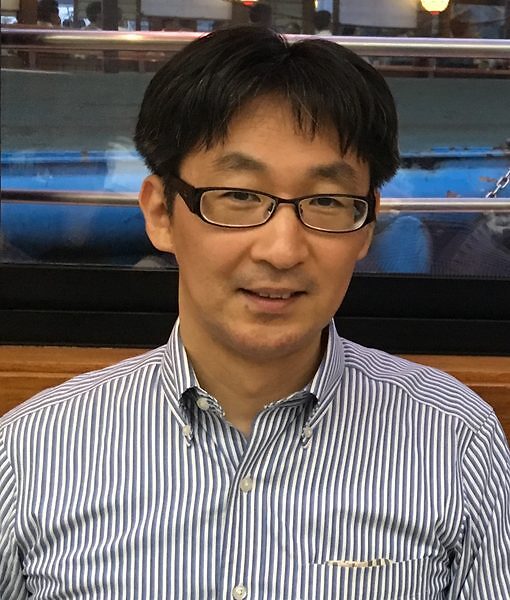Telomere as the starting point of anticancer drug discovery

Date
Location
Description
Dear All,
Cell Signal Unit (Yamamoto Unit) would like to inform you of a seminar by Dr. Hiroyuki Seimiya from Japanese Foundation for Cancer Research.
-----------------------------------------------------------
Date: Wednesday, January 23, 2019
Time: 13:00-14:00
Venue: C016, Level C, Lab 1
-----------------------------------------------------------
Speaker:
Dr. Hiroyuki Seimiya, Chief, Japanese Foundation for Cancer Research
Title:
Telomere as the starting point of anticancer drug discovery
Abstract:
Telomeres, the capping structures of eukaryotic chromosome ends, contribute to genomic stability. Gradual shortening of telomeres in replicating cells eventually causes cellular senescence or apoptosis. In contrast, cancer cells reactivate the telomere-synthesizing enzyme called telomerase, and exhibit an infinite proliferative capacity. We have previously developed chemical inhibitors of telomerase and tankyrase poly(ADP-ribose) polymerase (PARP), a positive regulator of telomerase, and verified their antitumor efficacies in preclinical models. Tankyrase also enhances Wnt/β-catenin signaling, and it has been postulated that this unique PARP is a promising therapeutic target of Wnt-driven cancer. Our newly developed tankyrase inhibitor RK-287107 inhibits the APC-mutated colorectal cancer cell growth in vivo. Furthermore, we recently found that colorectal cancer cells with “short” APC mutations or the cancer stem-like cell subpopulations are sensitive to the deleterious effect of tankyrase inhibitors. Meanwhile, telomeric nucleic acids can form higher-order structures called G-quadruplexes (G4s). We found that G4s in the telomeric non-coding RNA regulate innate immune gene expression and tumor differentiation in vivo. G4s exist not only at the telomeric sequences but also at transcriptionally active sites in a genome-wide manner. Especially, it has been reported that G4a are abundant at cancer-related genetic loci, suggesting that perturbation of G4 dynamics may compromise the viability of cancer cells. We demonstrated that G4 stabilization by small-molecule compounds, such as telomestatin and its synthetic derivatives, exerts anticancer effects in mouse xenograft models. In this seminar, I would like to introduce these basic researches in telomere biology and their potential applications to innovative anticancer drug development.
Host:
Prof. Tadashi Yamamoto
We hope to see many of you at the seminar.
Best regards,
Yuki Nakagawa
Research Unit Administrator
Cell Signal Unit
Subscribe to the OIST Calendar: Right-click to download, then open in your calendar application.



